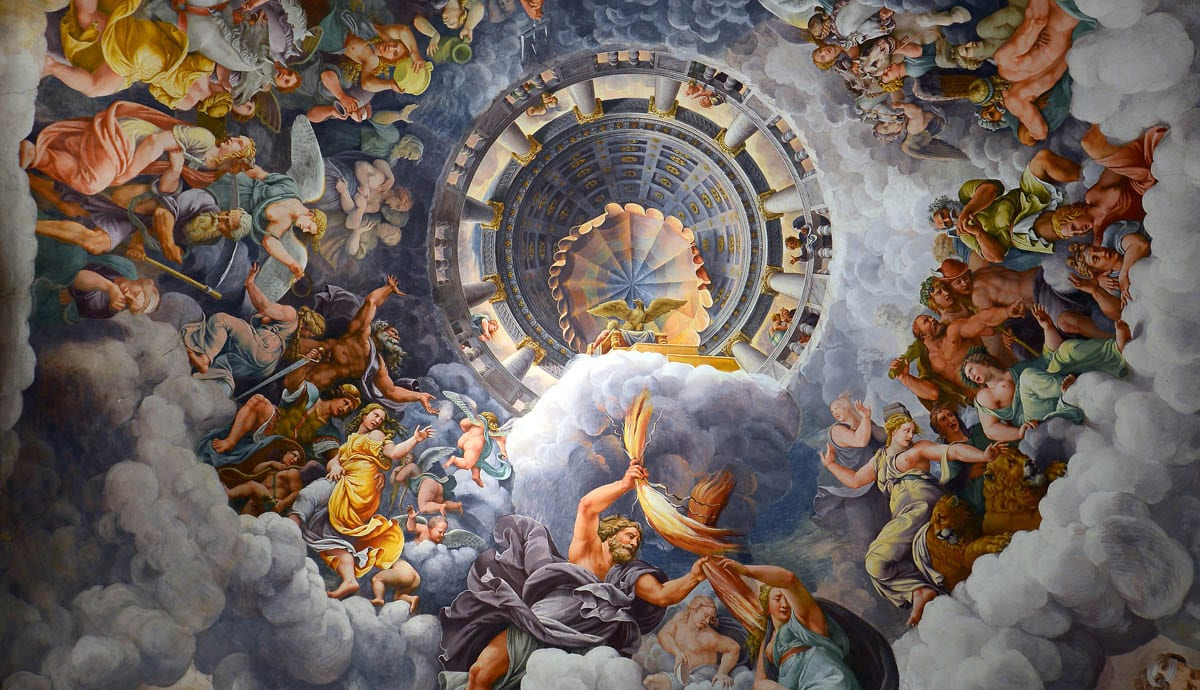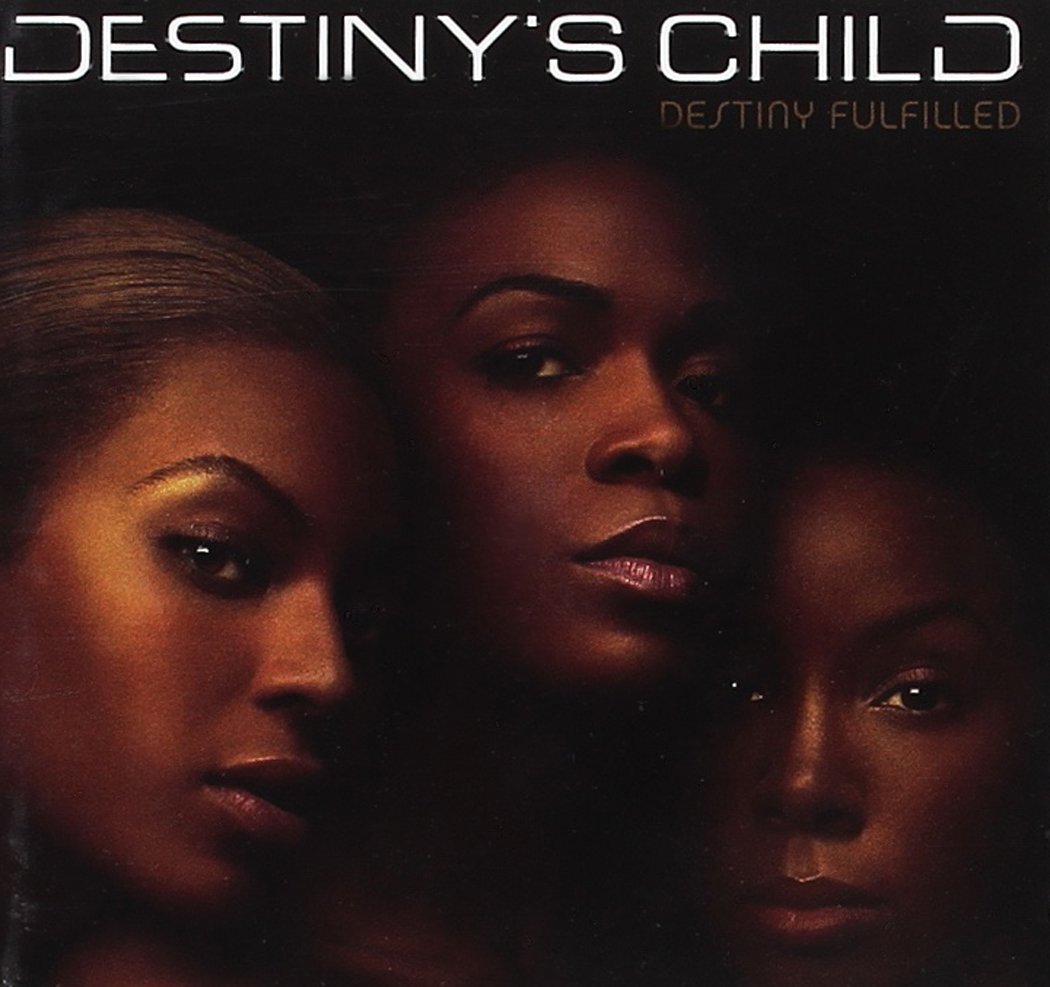Bad Religion: The 12 Olympians of Greek Mythology As Songs
As one of the most popular religions of the ancient period, the Greek gods and goddesses remain cultural icons and can best be remembered through your favorite songs.
Bad Religion explores the relationship between music and spirituality, from Christianity and Islam to the paranormal and the occult.
Written by Mahina Adams
Photo courtesy of The Collector
With casting starting for the upcoming Netflix adaptation of Rick Riordian’s “Percy Jackson and The Olympians,” everyone is converting back to their middle school Greek mythology phases. Citing inarguably the most iconic and well-known of the non-Abrahamic religions, this list explores the Hellenistic gods and goddesses in a modern-day context, connecting their mythologies with the hits of today.
Zeus: “All Me” by Drake
Image courtesy of OVO Sound
As the orginal f-ckboy, Zeus didn’t shy away from a good sexual encounter and is infamous for his many stories seducing both mortal and immortal women. Like Drake flexes on “All Me,” both have many women waiting to “fall in line” and flaunt the excess of women they have been involved with.
Hera: “No Body, No Crime” by Taylor Swift
Photo courtesy of Republic Records
Known for her solemnity, Hera was a great punisher and proved like Taylor Swift does on her track, “No Body, No Crime,” she is not the one to be messed with. Hera usually punished both Zeus and the women he was involved with, and unlike Swift, did not hide her revenge. Gods and mortals alike knew Hera “wasn’t letting up until the day he died.”
Poseidon: “I Ain’t Got Time!” by Tyler, The Creator
Image courtesy of Columbia Records
Worshippers of Poseidon, the god of the sea in the classical Greek religion, understood him to be the most ill-tempered god among the Olympians. He was easily insulted and quick to drive to vengeance, often inflicting his bad temper on the waters, and the ocean reflected his unstable temperament and emotional fluctuations. The upbeat tempo present on the track, “I Ain’t Got Time!” reflect the moody nature of Poseidon, who positions himself as “dat boy” on Mount Olympus, often at odds with his brothers Zeus and Hades.
Demeter: “Everything Is Everything” by Lauryn Hill
Image courtesy of Columbia Records
Demeter’s mythology is centered around the loss and search for her daughter Persephone, who was abducted by Hades. As goddess of the harvest and fertility of the earth, her story is one of overcoming grief, which the Greeks believed was the cause of the winter season due to her neglect of the earth and Persephone’s absence. Due to this search and eventual reunification with her daughter, she knows all too well of the ups and downs Lauryn Hill sings about when she expresses, “after winter, must come spring.” The song does end on a positive note (“what is meant to be, will be … tomorrow, our seeds will grow”), similar to the seasons of spring and summer when Demeter is known as the “good goddess” because of the abundance she brought when she was happy.
Athena: “I’m Still Standing” by Elton John
Image courtesy of Geffen Records
Athena, one of the most widely worshipped of the Greek gods, was the goddess of many things: from cunning and courage, to strength and strategy. Often depicted as a companion of Greek heroes, she was believed to guide men in their heroic endeavors and gave them the skill to succeed in war. Being a fierce and cunning warrior herself, Elton John’s song, “I’m Still Standing,” resonates the sounds of victory exemplified through Athena. As a song about finding confidence and overcoming challenges, it shows the strong sense of survival Athena came to embody, even if it wasn’t explicitly written for the battlefield. Although John is referencing heartbreak throughout his song, being a survivor is what Athena was praised for.
Apollo: “I Hear A Symphony” by Cody Fry
Image courtesy of Cody Fry
As god and patron of poetry, music, and the arts, Apollo carried vast amounts of musical knowledge and was the greatest musician among the Olympians. In mythology, he often entertained other gods and goddesses with songs on his golden lyre, a stringed instrument similar to a harp. Cody Fry’s “I Hear A Symphony” matches Apollo not so much in its lyricism, but in the carefully executed symphony that carries the song. Filled with emotion, it showcases the musical skill associated with Apollo and in Fry’s discussion of perfection, relates to Apollo in another way as he was revered by the other Olympians for his radiant grace and youthful beauty.
Artemis: “Girl” by Destiny’s Child
Image courtesy of Columbia Records
One of the most respected of all the ancient Greek deities, Artemis was known as the goddess of the hunt as well as the protector of women and young children. Born a day before her twin Apollo, she served as his guardian, creating the origin of her desire to protect and nurture others. In “Girl” by Destiny’s Child, the trio communicates a desire to protect those around you, yet the group fixates on heartbreak rather than protecting women in survival. Artemis was important in the lives of Greek women and in their protection. From the line in the chorus, “I'm your girl, you're my girl, we your girls,” female solidarity is communicated as a powerful source of protection.
Ares: “Ain’t No Rest For The Wicked” by Cage The Elephant
Image courtesy of Relentless Records
Ares represented the spirit of battle, and unlike the heroism in war which Athena was goddess of, his focus was on the harsh aspects of brutal warfare and slaughter on the battlefield. The aspects of war that were chaotic and violent is the reason for his relation to Cage the Elephant’s “Ain’t No Rest For the Wicked.” As a song about struggle and the need to get by, it shows the violence that sometimes has to ensue to make it in an unfair world, just as violence occurs on the battlefield. The songs suggest people are doing things they are not proud of, and many soldiers, especially in the Trojan war, fought and killed not for themselves but because of their position as soldiers.
Hephaestus: “Alien Boy” by Oliver Tree
Image courtesy of Atlantic Records
Hephaestus, if nothing else, is known as the ugliest of the Olympians, and due to his appearance, Zeus married him to Aphrodite to prevent other gods from fighting each other for her hand in marriage. Although he also was a patron of the arts, he was far less superior to other gods with similar interests such as Athena and Apollo. On Mount Olympus, he created technological inventions and acted as a blacksmith for the gods. Upon his birth when realized to be ugly and deformed, he was cast out of Heaven because he was imperfect and like “Alien Boy,” fell “from a hundred miles away” but somehow still makes it work. Being an outcast like Oliver Tree, who considers himself “an alien among the human beings,” Hephaestus was ugly amongst perfect immortals.
Aphrodite: “Freaky Girls” by Megan Thee Stallion feat. SZA
Image courtesy of 300 Entertainment
Not only is Aphrodite the goddess of love, fertility, and beauty, but she also presides over the feeling of sexual pleasure and romantic passion. As a seductress of both mortals and gods alike, the confidence exuded by Aphrodite can best be shown by none other than Megan thee Stallion today. “Freaky Girls” discusses how Megan the Stallion is a force to be reckoned with, intimidating men, breeding “prize babies,” and being an all-around “special kind of lady.” Aphrodite had the same resonance in ancient Greece and even helped create Pandora, a beautiful woman created to become an evil men would embrace and painfully desire.
Hermes: “Highway to Hell” by AC/DC
Image courtesy of Albert Productions
Hermes was the messenger god on Mount Olympus and served as a protector for thieves and travelers, while also acting as a guide to lead people into the Underworld. Since he carried the ability to move freely between the divine and mortal worlds, he conducted souls to Hades, hence guiding them on the “Highway to Hell.” The lines “Don’t need no reason, don’t need no rhyme,” correspond with Hermes’ reputation as a trickster among the gods and his enjoyment of committing and watching deceptive acts.
Dionysus: “Greek God” by Conan Gray
Image courtesy of Republic Records
“Greek God” (so perfectly named) is the anthem for outsiders. Being an outsider is what Dionysus is all about. His unusual birth — being sewn out of Zeus’ thigh — and upbringing outside of Mount Olympus marked him different as soon as he was born. Referred to as the “liberator” due to his love for wine, music, and ecstatic behavior, he was able to free his followers from the restraints of society and was the protector of misfits. The opening lines, “Oh, I don’t really care if you like me or not / But I know that you want me to,” shows Dionysus’s carefree lifestyle and despite being an outsider, it didn’t bother him or his worshippers that much.













